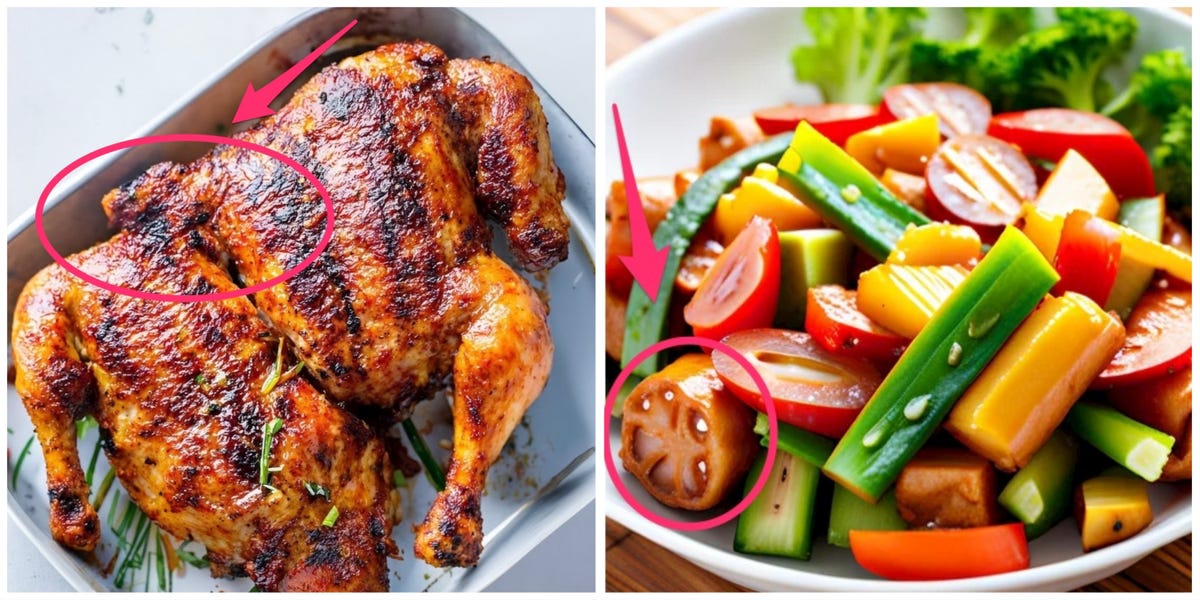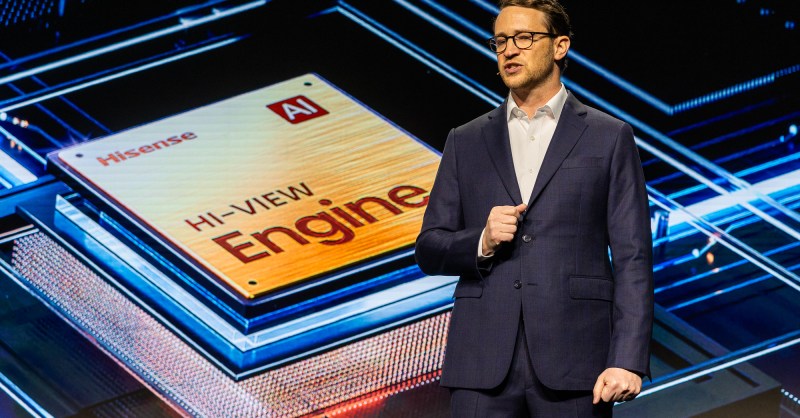Instacart, the grocery delivery application, has incorporated generative AI technology to enhance the food images accompanying its AI-generated recipes. The outcomes, however, have been somewhat unsettling.
Initially observed on the Instacart subreddit, the images exhibit typical characteristics of AI-generated visuals. Business Insider verified these findings and uncovered additional instances by conducting searches for common ingredients or recipes like “chicken,” “cheese,” or “cookie.”
Numerous pictures display physically implausible or improbable compositions, artificial shadows, and the fusion of two visually similar elements into a single object. For example, consider the image depicting “Hot Dog Stir Fry,” where a hot dog exhibits the internal texture of a tomato.
Another example is the illustration for “Grilled Salmon Ceaser Salad,” where a lemon slice and lettuce amalgamate to form a novel fruit-and-vegetable hybrid previously unseen by humans.
Although AI image recognition software remains imperfect, all the aforementioned images underwent evaluation using a program designed to identify AI-generated imagery: Is It AI. Subsequently, all these images were determined to be likely produced by AI.
Moreover, the text detailing the ingredients and instructions for the aforementioned recipes is also AI-generated, as acknowledged by Instacart itself: “This recipe is powered by the magic of AI, so that means it may not be perfect. Check temperatures, taste, and season as you go. Or totally switch things up — you’re the head chef now. Consult product packaging to confirm any dietary or nutritional information which is provided here for convenience only. Make sure to follow recommended food safety guidelines.”
A search on Instacart’s platform using the mentioned text string yielded over 8,000 results for recipes ranging from “Grilled Asparagus” to “Argentine Torta de Ricota.”
Upon a cursory examination by BI of five distinct recipes containing that text, it was observed that all the accompanying photos were likely generated by AI, according to the AI detection software employed by BI. However, BI could not ascertain if this held true for all recipes featuring that specific text string.
A representative from Instacart informed BI that the company is focused on “optimizing for the best user experience.”
In May 2023, Instacart revealed a collaboration with OpenAI to develop an “Ask Instacart” AI model enabling users to seek dinner suggestions. The press release did not explicitly mention the addition of AI-generated recipes to the platform.
“We are continuously refining our product to meet consumer expectations as generative AI technology advances,” stated the spokesperson.
Several companies have faced allegations or admitted to utilizing generative AI imagery in recent times. Reuters reported that prominent advertising agencies incorporate generative AI art in their advertisements. Wacom, a leading producer of tablets for digital artists, removed images suspected to be generated by AI. Wizards of the Coast, a gaming entity, issued an apology after utilizing generative AI in certain advertisements.
Despite a few exceptions like Adobe Firefly, the legality of most generative AI imagery remains ambiguous concerning copyright infringement and intellectual property rights, as the majority are trained on unlicensed imagery for AI training datasets. Getty has taken legal action against Stability AI, accusing it of utilizing its photos without authorization. (Axel Springer, BI’s parent company, has agreed to collaborate with OpenAI to potentially offer content from Axel Springer properties in responses by users through ChatGPT.)
Instacart, among the few companies that went public in 2023, experienced a 25% decline from its IPO price of $30 by the end of trading on Friday. Apart from a brief surge during its debut, the stock has struggled to surpass its IPO price. The forthcoming earnings report is scheduled for mid-February.






